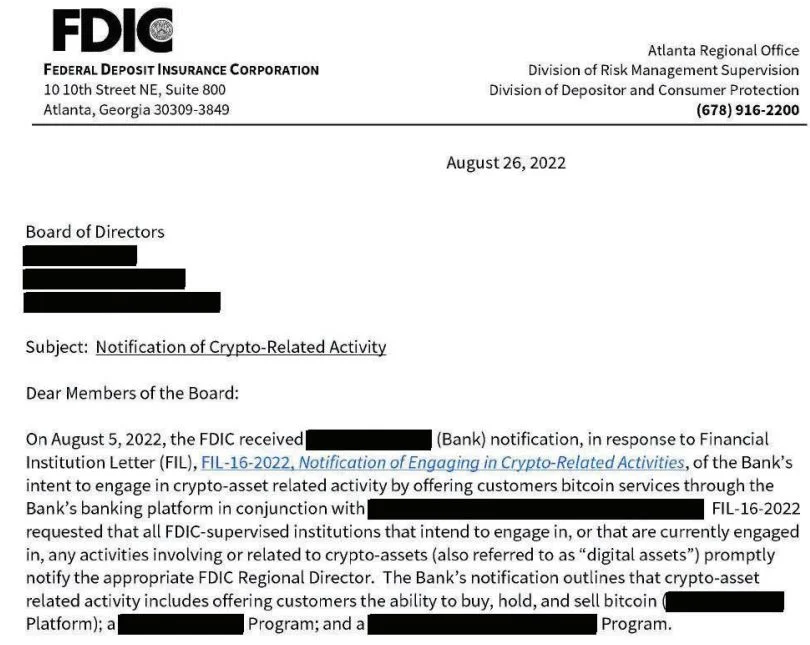FDIC Vice Chairman Travis Hill has criticized previous actions by federal agencies limiting banks’ participation in cryptocurrency activities.
He argued that these measures, including the use of “standstill letters,” have hindered innovation and created the impression that regulators are blocking blockchain development.
Calls for an End to Restrictive Banking Practices like Operation Chokepoint
Mr. Hill called for an end to practices similar to “Operation Chokepoint” and called for changes in how the Bank Secrecy Act is enforced. He emphasized the need to reduce pressure on banks to close accounts due to fears of heavy fines for non-compliance.
He also expressed support for better cooperation with the cryptocurrency sector.
In one speech announced on Friday, Mr. Hill suggested that the FDIC should take a more open stance toward digital assets. He emphasized the need for clear guidance on how banks can safely participate in cryptocurrencies.
Mr. Hill, who has been vice chairman since 2022, is expected to serve as acting chairman of the agency, which insures U.S. bank deposits.
“There is a healthy balance between (1) letting banks evolve with the times and (2) ensuring banks continue to manage risk prudently, and in recent years the FDIC has don’t do a good job of balancing that,” he said.
His comments come as the cryptocurrency industry has expressed concerns about regulatory indirection. Coinbase sued the FDIC in June, accusing the agency of trying to sever ties between banks and the cryptocurrency sector.
This lawsuit, which also seeks access to “stop letters,” alleges that these actions unfairly target the industry.
Push for Clearer Cryptocurrency Guidance
A 2023 report from the FDIC Office of Inspector General revealed that between March 2022 and May 2023, the agency sent “standstill letters” to multiple banks. These letters ask banks to pause cryptocurrency-related activities while providing more information for review.
The report highlights a lack of clarity on standards for dealing with digital assets.

Mr. Hill criticized the shift toward handling cryptocurrency cases on an individual basis rather than providing clear and consistent guidance.
He also mentioned comparisons to a 2013 Justice Department initiative called Operation Chokepoint. The initiative targeted industries such as high-interest lending and weapons by limiting their access to banking services.
“While adopting a new approach to digital assets — and putting an end to any and all tactics like Choke Point — is a necessary first step, regulators also need to evaluate our approach to implementing the Bank Secrecy Act (BSA),” said Mr. Hill.
Cryptocurrency campaigners have used the term “Operation Chokepoint 2.0” to describe a covert effort by regulators to isolate the cryptocurrency industry.
Documents obtained by Coinbase show that the FDIC has encouraged banks not to engage with crypto businesses in the name of reputational risk management.
“While we all share the goal of ensuring that criminals and terrorists do not use the banking system to finance drug trafficking, terrorism and other serious crimes, the current BSA regime creating incentives for banks to close accounts rather than risk heavy fines for non-compliance with the BSA,” the FDIC Vice Chairman further explained.
Industry leaders, including Cardano founder Charles Hoskinson, have called for solidarity in response to what they describe as aggressive bank stoppages. The controversy also attracted attention from political figures. David Sacks, the New Czar of Cryptocurrency, has pledged to tackle banking restrictions targeting cryptocurrency businesses.
